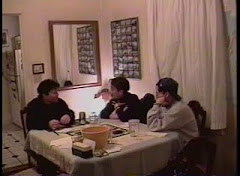Department of East Asian Languages and Literature, Department of English and Department of Sociology
Present a lecture on Conversation Analysis
Proffering insertable elements: A study of other-initiated repair in Japanese
Makoto Hayashi
University of Illinois at Urbana-Champaign
Kaoru Hayano
Max Planck Institute for Psycholinguistics
4:30-6:00 pm
Friday, October 15, 2010
L185 Education
Abstract
Intended as a contribution to a growing effort to understand the organization of repair across languages, this paper examines one particular type of turn-constructional practice used for other-initiated repair in Japanese conversation. The target practice, which we term ‘proffering insertable elements’ (PIE), is described as follows. Upon completion of another speaker’s turn, the repair-initiating party proffers a candidate understanding of an element that was projected but not delivered in that prior turn. It is notable in this practice that the proffered candidate understanding is designed in such a way that it is grammatically ‘insertable’ into the structure of the trouble-source turn. For example:
A: kyuushuu ni kaeru koto ni shita toka yutte
Kyushu to return N PT did QT say
(X) told me (X) would go back to Kyushu. {(X) = unexpressed element}
-> ![]() oya ga?
oya ga?
parent SP
Your parents?
In this example, B proffers a candidate understanding of an element that was projected but not delivered in A’s turn, and she formats it as a subject noun phrase (a nominal + subject particle ga) that fits into the grammatical structure of A’s turn. Based on an examination of various other forms of other-initiated repair in Japanese, we argue that the format of PIE can be seen as asserting the least degree of speakership on the part of the repair-initiating party. This is so because, in this practice, the proffered understanding is designed and presented as if the repair-initiating party were voicing a part of the trouble source turn by another speaker. In other words, PIEs appear to be designed to maintain the trouble-source speaker’s speakership to a maximum degree while at the same time soliciting confirmation for a correct understanding of a projected yet undelivered element of that other speaker’s turn. We show that this design feature of PIEs makes them suitable for executing an other-initiated repair in a maximally aligning manner—‘aligning’ in the sense that it introduces a minimal disruption to the progressivity of the project that the other speaker is pursuing.
